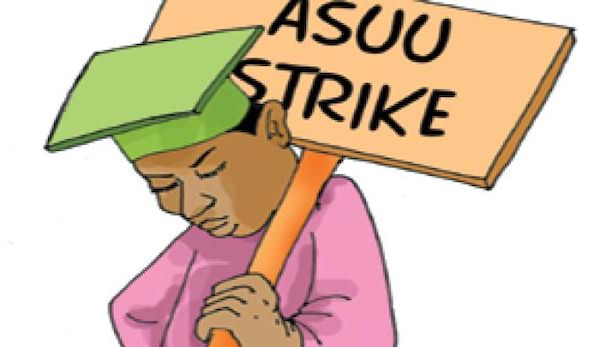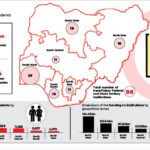Nigeria, from North to South, was filled with optimism over a recent newsflash that the Academic Staff Union of Universities (ASUU), after a meeting with religious leaders, had considered stepping back from its strike action and returning to classroom, as the renegotiation of its dispute with the federal government was being activated. The positive report became popular among Nigerians in the context of the frustration and hardship which university students and their parents are enduring since the last three months. However, less than 24 hours after the glimmer of hope appeared on our horizon, it was dashed in a gloomy retraction by ASUU’s leadership, which anchored its resolve to continue the strike action on government’s failure to address their grievances. But it should be clear to ASUU at this point that a prolonged industrial action, for another three months, as projected in its statements, just makes no sense.
Our academic staff have asked government to meet two primary conditions of the renegotiated 2020 agreement with government before they call off the ongoing strike action. The two issues, precisely about payment platform and outstanding salaries, captured in the agreement read out by the minister of Labour and Productivity, Dr Chris Ngige, in 2020 thus: “We are …reviewing how the lecturers will be paid on the old platform until UTAS is ready for usage. We agreed also that the withheld salaries are the component of the issue of ‘no work, no pay’ that was invoked and the minister of education and myself are working on to get approval for the lifting of the embargo…” These issues have not been resolved, two years after.
- Tears as woman, 4 kids killed by IPOB buried in Anambra
- Only negotiation will secure release of Abuja-Kaduna train abductees – Released pregnant victim
We reiterate that we totally condemn government’s bureaucracy for not keeping to the terms and conditions of the 2020 agreement. The government must understand that agreements reached are meant to be kept and it should therefore do everything possible to solve this impasse as soon as possible. The danger of these strikes to the education of Nigerian youths cannot be overemphasised and the federal government should consider this crisis a priority and address it immediately.
However, the problems facing Nigeria’s education system are far beyond the payment of salaries to ASUU, and the damage being done due to the academic staff’s strike is enormous and not quantifiable. Over the years, strikes have contributed to the erosion of the quality of teaching and learning, leading to the production of poorly baked, confused, frustrated and even unemployable graduates. This outcome is a deviation from the essence of the much-talked-about 2009 FG-ASUU agreement, anchored on a cardinal issue: ‘To reverse the decay in the university system, in order to reposition it for greater responsibilities in national development’.
As a matter of fact, the implementation of UTAS and payment of lecturers’ outstanding salaries are too little, very cosmetic, to deal with the enormous, inherent and besetting crisis in Nigeria’s education system. Apart from the dwindling quality of teaching and learning, the corruption in our universities is so horrendous that many Nigerians are shocked that university lecturers have either overlooked it or are sucked into it. For instance, there is lack of transparency and accountability in the receipt and management of Internally Generated Revenues (IGRs) in tertiary institutions. Fees paid by over-populated undergraduates and post-graduate students are never transparently accounted for. On its part, ASUU has not raised its voice to bring the management of our universities to account for them.
On several occasions, the Independent Corrupt Practices and Other Related Offences Commission (ICPC) has raised the alarm over the mismanagement of IGRs by university administrators, who commit all the infractions under the nose of our academic staff. Instead of applying IGRs to the needs of our university communities, ASUU has continued to look away while the funds are being stolen through fictitious contracts and bogus expenses.
In a nutshell, ASUU must look inward. Universities are vital institutions that must not be surrendered to jesters and corrupt administrators. Unfortunately, ASUU seems not to have realized that our universities are becoming a byword for complacency, a laughing stock in and outside Nigeria.
It must be stated clearly that ASUU is losing a lot of goodwill and the people’s sympathy due to its unbending stance in this instance, as the strike is becoming indefensible. It is clear that government has admitted its wrong-doing, and is setting in place the motion for renegotiation. At a time like this, ASUU should return to the classroom while its leadership vigorously reins in all stakeholders to ensure that government keeps to its terms of the agreement by making budgetary allocations that cover the financial commitments to university lecturers. If it is obvious that the current funding strategies are inadequate, ASUU, university authorities and education stakeholders in Nigeria must come together to fashion out a more pragmatic strategy, instead of giving university lecturers the excuse to embark on strikes every year. These strikes have to stop.

 Join Daily Trust WhatsApp Community For Quick Access To News and Happenings Around You.
Join Daily Trust WhatsApp Community For Quick Access To News and Happenings Around You.


